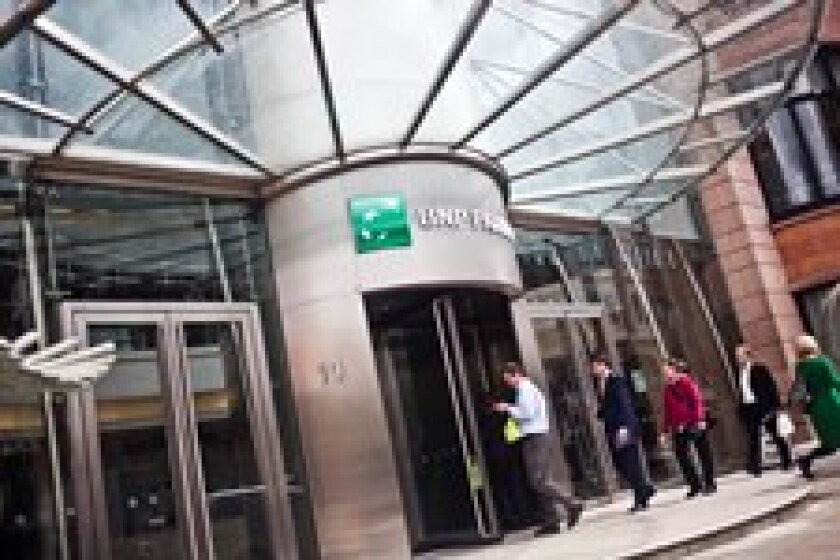On Tuesday, BNP Paribas turned in what ought to be an exemplary set of results, by recent European bank standards. Historically a fixed income house, the bank’s CIB benefited from a flurry of trading at year-end. It kept risk and expenses down, stuck to its plan to raise capital and sell assets, and has most of its (admittedly large) legal troubles behind it.
It also unveiled a new business plan, taking it through to 2020. It wants to win market share, build capital, and achieve a solid, if unspectacular 10% return on equity.
Still, the market hated the plan, seemingly for its lack of ambition and conservative assumptions. Shares were down 5% at one stage on Tuesday, to the point where Deutsche Bank’s analysts described the move as “unwarranted”, with fears “exaggerated”, and plenty of upside in the conservative assumptions of management.
It’s true that the bank is already managing 9.3% ROE, so 10% in four years isn’t exactly setting the world on fire — but if the past eight years are any guide, capital rules will turn tougher, fees will shrink and banking will grow harder. Surveying the recent history of European banking, pockmarked with multiple rights issues, defenestrated bosses and broken promises, surely it’s about time for a little caution to start influencing forward management assumptions in banking?
That’s the point of new-style banking, after all. Equity levels might be vastly higher than pre-crisis, but post-crisis universal banks are supposed to be safer, less volatile, and more reliable — utilities, but geared to growth. As equity levels rise, a lower return on equity isn’t failure, it’s just maths.
Shame, then, that nobody seems to have told shareholders that.

